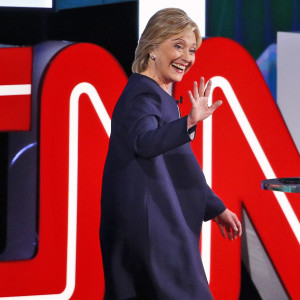While the media fact-checkers and reporters are busily hacking away at whether Ben Carson was actually awarded a scholarship to attend West Point 40 years ago, an outright falsehood in a Hillary Clinton speech last month has received no attention at all.
In announcing her “Wall Street reform plan,” the leading Democratic candidate for president said, “Before the crisis hit, as a senator from New York, I was alarmed by this gathering storm, and called for addressing the risks of derivatives, cracking down on abusive subprime mortgages and improving financial oversight. Unfortunately, the Bush administration and Republicans in Congress largely ignored calls for reform.”
Mrs. Clinton has conveniently forgotten that in July 2005 the Senate Banking Committee, then under the control of the Republicans, voted out comprehensive legislation to reform the regulation of Fannie Mae and Freddie Mac — then and still today the dominant players in the housing finance system.
The bill would have created a tough new regulator for Fannie and Freddie, authorized the agency to set risk-based capital requirements commensurate with their risks, required them to report on fraudulent loans, established a system of prompt corrective action when their capital levels declined, required dismissal of board members and executives who were in office 180 days before the company became undercapitalized, and provided for civil and criminal penalties, among many other provisions.
The bill was voted out of committee on a party-line vote, with all Republicans voting in favor and all Democrats voting against. As required by Senate procedures, there is a vote on whether the body should take up specific legislation. This is where the opportunity for a filibuster arises, because in order to take up a particular bill at least 60 Senators must approve. Hillary Clinton joined Barack Obama in filibustering the bill, so this tough legislation never got a vote in the Senate.
So much for the truthfulness of Clinton’s statement, and the quality of the fact-checking world when it comes to statements by a leading Democratic candidate. The Republicans had in fact created legislation that would have permitted a regulator to control the risks at Fannie Mae and Freddie Mac, and the Democrats — including Hillary Clinton — in effect voted it down.
It is an aside, but an important one, that Hillary Clinton and Barack Obama were among the top Senate recipients of campaign funds from Fannie Mae, which at that time was allowed to make campaign contributions and was very generous with legislators that opposed new and tougher regulation of its activities.
Generally, I believe it is unfair to charge a politician with voting in accord with political contributions received, since many contributors — perhaps most — contribute to lawmakers because they like the lawmaker’s policy positions. The implication that the contribution resulted in the vote is probably the opposite of what really happens — the vote in fact is what results in the contribution.
However, in this case, one has to wonder. If Mrs. Clinton really favored tougher regulation of Fannie and Freddie, why did she join in voting against legislation in 2005 that unquestionably would have provided it? Were the Fannie Mae contributions responsible for her change of mind? Another question for the fact-checkers.
It’s also worth asking whether Mrs. Clinton’s vote did any harm. In 2005, Fannie and Freddie were in the midst of a frenzied buying spree for subprime and other risky mortgages. That year, they acquired $547 billion; in 2006, they acquired an additional $568 billion and in 2007 they acquired $676 billion.
In 2008, Fannie Mae alone later reported, it was still exposed to $878 billion in these risky mortgages, and that 81.3 percent of its 2008 losses came from these loans. Since those losses, as well as the losses of Freddie Mac, had to be picked up by the taxpayers, and might have been prevented by the tough new law she voted against, it certainly seems that Mrs. Clinton’s vote did real harm to someone.
The question is whether it will do harm to her candidacy, and that depends on whether the fact-checkers do their job even-handedly. Those Pinocchios are waiting to be deployed.

